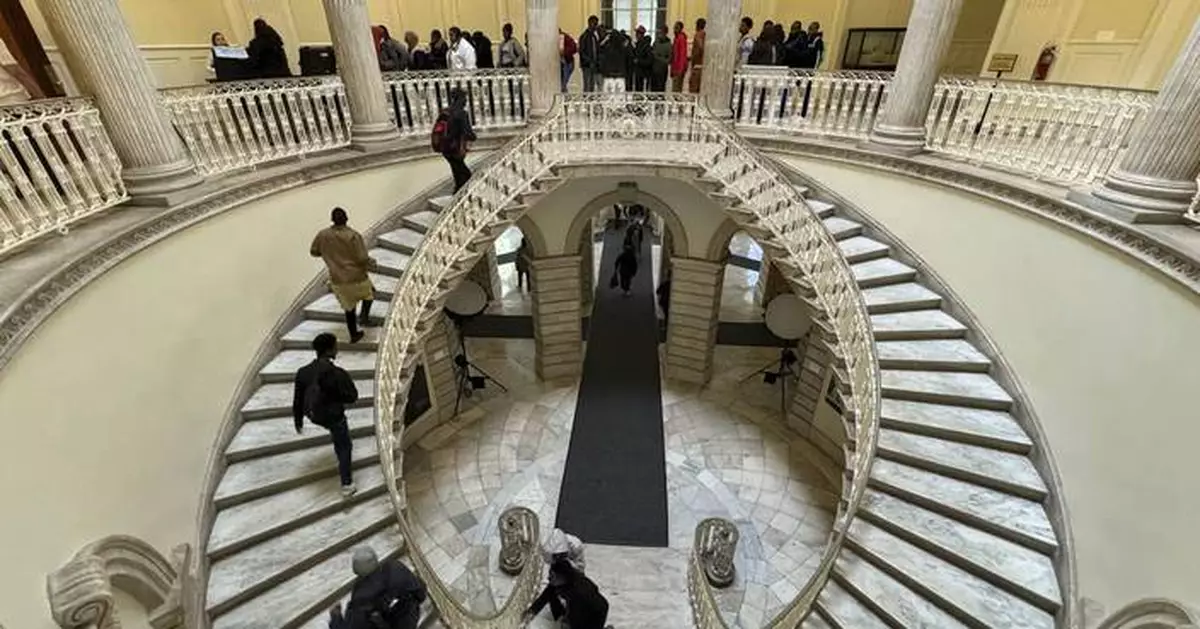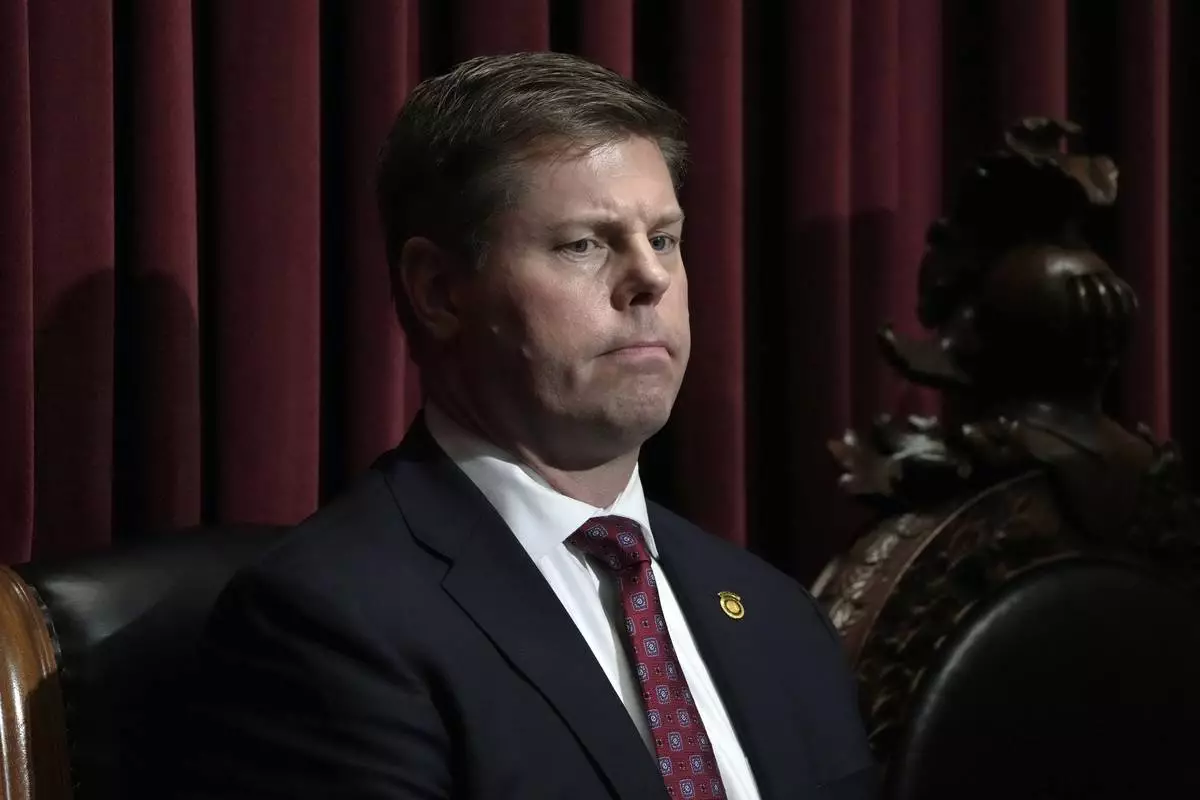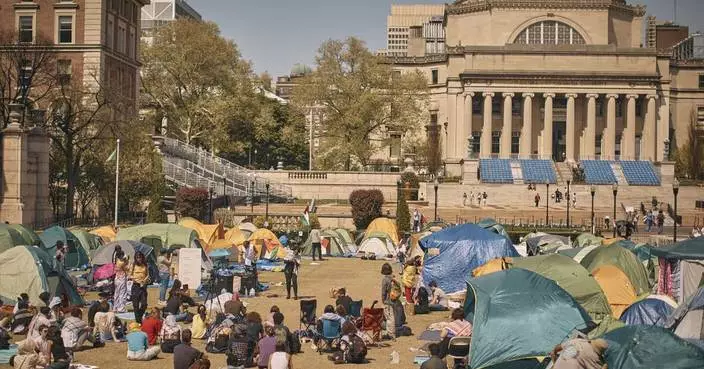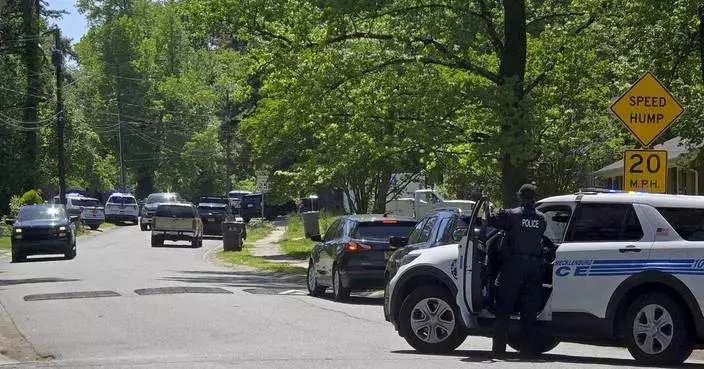NEW YORK (AP) — Black immigrants turned out in the hundreds on Tuesday across from New York City Hall during a hearing about racial inequities in the city's shelter and immigrant support systems.
Over 1,500 immigrants, mostly from Guinea, assembled in City Hall Park, after it became clear that only around a hundred people would be accommodated inside for the hearing.
The City Council considered relatively minor proposals. One set of bills would require administrators to collect better data on migrants in city services. Another effort, a resolution, called on the federal government to eliminate or to reimburse immigration application fees.
City Council members are asking for better data because they believe, with some evidence acknowledged by city officials, that Black migrants are more often turned away from shelters, denied access to help in their native languages, and less able to find accommodations for religious practices than others.
City officials say African migrants are more likely to arrive to the city without children, meaning they're often less of a priority for limited shelter space. Under a recent legal settlement, the city can evict adult migrants after 30 days in a shelter and 60 days for those under age 23, before forcing them to reapply for another spot. It's unclear how often those migrants end up sleeping on the street or in a subway car.
“The 30-60 day notices disproportionately affect Black immigrants,” said Council Member Alexa Avilés, Chair of the Committee on Immigration, in a gilded hearing room Tuesday. Dozens of immigrants listened to proceedings on headsets with access to simultaneous translations in Wolof, Haitian Creole, Arabic, French, Fula and Bambara.
Rallies in support of City Council proposals are common, but usually draw only a few dozen people, often just the most tuned-in activists. But Guineans cheering and clapping outside Tuesday said that by word of mouth, often on WhatsApp groups with fellow immigrants, they learned about the event and came to support City Council members, or see if they could get information about jobs and housing. Some learned for the first time that they’re eligible for city-run health insurance.
"I’m very impressed that, you know, today there was a call to action and you showed up,” Council Member Mercedes Narcisse said to those inside the hearing room and outside in the park.
“We want support, because we have no shelter, we have nowhere to live. What is more, we also want help in legalizing our situation in this country,” said Ibrahima Barry, from Guinea, of gaining work permission and residency.
While asylum-seekers must wait six months for a possible work permit, some migrant groups are offered a shortcut.
In September, President Joe Biden authorized Venezuelans already in the country to receive indefinite immigration protection, making them eligible for work permits. In December, in response to a surge of violence in Haiti, the administration announced an expansion of the program for Haitians.
Some countries in Africa, such as Sudan and Ethiopia, are also on that relief list, but not Guinea or other common origin countries of New York immigrants such as Senegal and Mauritania. And like the relief for Venezuelans, the protections don't apply to migrants who have arrived since the initial announcement.
Those migrants, many of them Muslim and French-speaking, face unique challenges that are not fully mitigated by the city's most well-funded charities, which tend to be Christian-based and have decades of experience serving Spanish-speaking migrants.
New York City's estimated 275 mosques were among the first to host or counsel Muslim immigrants seeking shelter, halal food and water spigots used in pre-prayer ablutions. But they've had trouble keeping up with demand, even as the city moves to drop some building code requirements to make it easier to convert religious buildings into shelters. New York City is home to thousands of immigrants from African countries whose languages and religions are distinct from the Latin American immigrants who make up the majority of those in the city’s care.
Around 75% of immigrants who are served by the city speak Spanish, followed by French — which is spoken in Guinea, Haiti and other countries — and then Wolof, Arabic and Chinese, according to Molly Schaefer, who leads the city's Office of Asylum Seeker Operations.
“Go look at the other cities. No one is sleeping in airports. No one is sleeping in police precincts. No one is sleeping in hospital, on floors. Children and families are not sleeping on the streets,” Mayor Eric Adams told reporters Tuesday. He spoke at an unrelated news conference that took place at the same time as the City Council hearing, referring to stopgap solutions found in other large cities over the past few years. “And we continue to evolve.”
Outside the hearing room, among blooming trees and the occasional tour group, Guinean video editor and web designer Diogo Diallo said he came to City Hall Park to find information, not necessarily to support a specific bill. His top request is to “accelerate the work permits,” which only federal authorities can do. He plans to submit an asylum application this week, enabling him to possibly receive a work permit in around six months. He'd like to get that sooner. Under a new legal settlement, he only has 2 weeks left before he has to reapply for a spot in a shelter, with the possibility of not getting another one.
“If I work, I can leave the shelter,” Diallo said.
—-
AP journalist Jocelyn Noveck contributed reporting.

Immigrants rally at City Hall Park outside City Hall in New York on Tuesday, April 16, 2024. Over 1,500 Black immigrants turned out across from City Hall during a hearing about racial inequities in the city's shelter and immigrant support systems. (AP Photo/Cedar Attanasio)
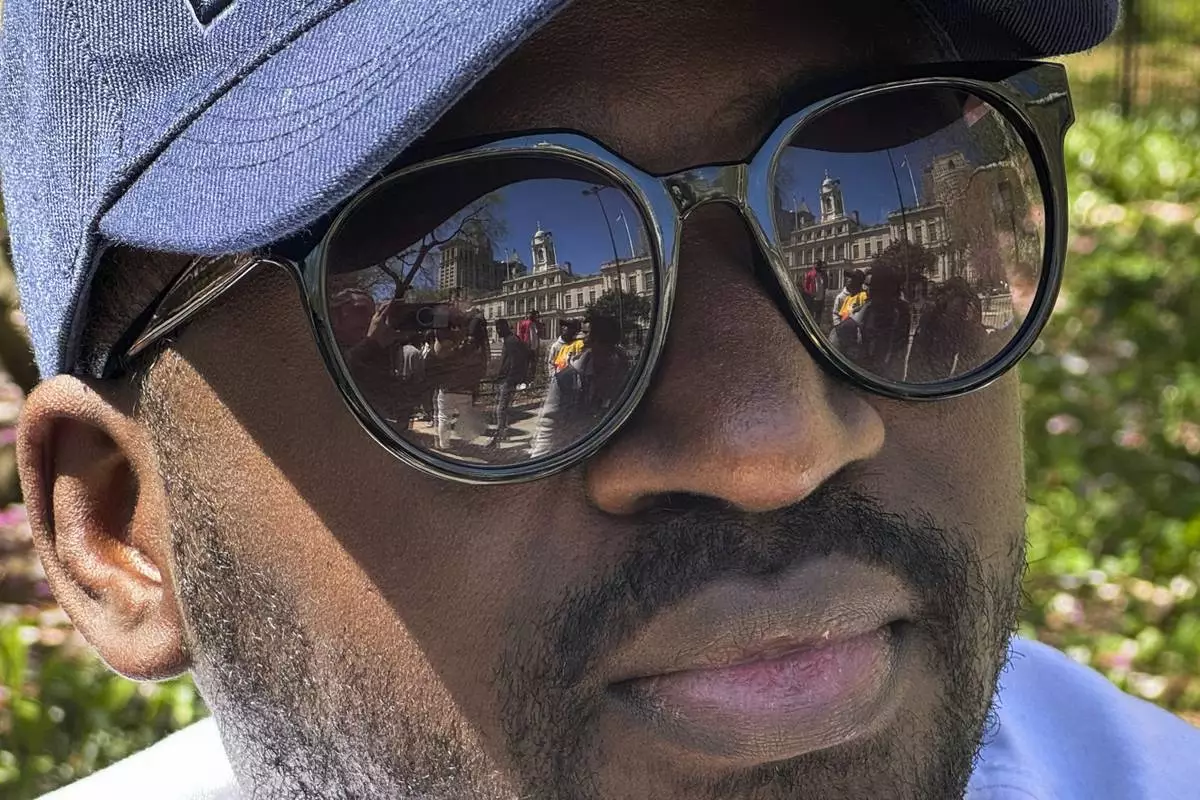
Guinean Diogo Diallo poses for a photo as City hall is reflected in his sunglasses in New York on Tuesday, April 16, 2024. Over 1,500 Black immigrants turned out across from City Hall during a hearing about racial inequities in the city's shelter and immigrant support systems. (AP Photo/Cedar Attanasio)
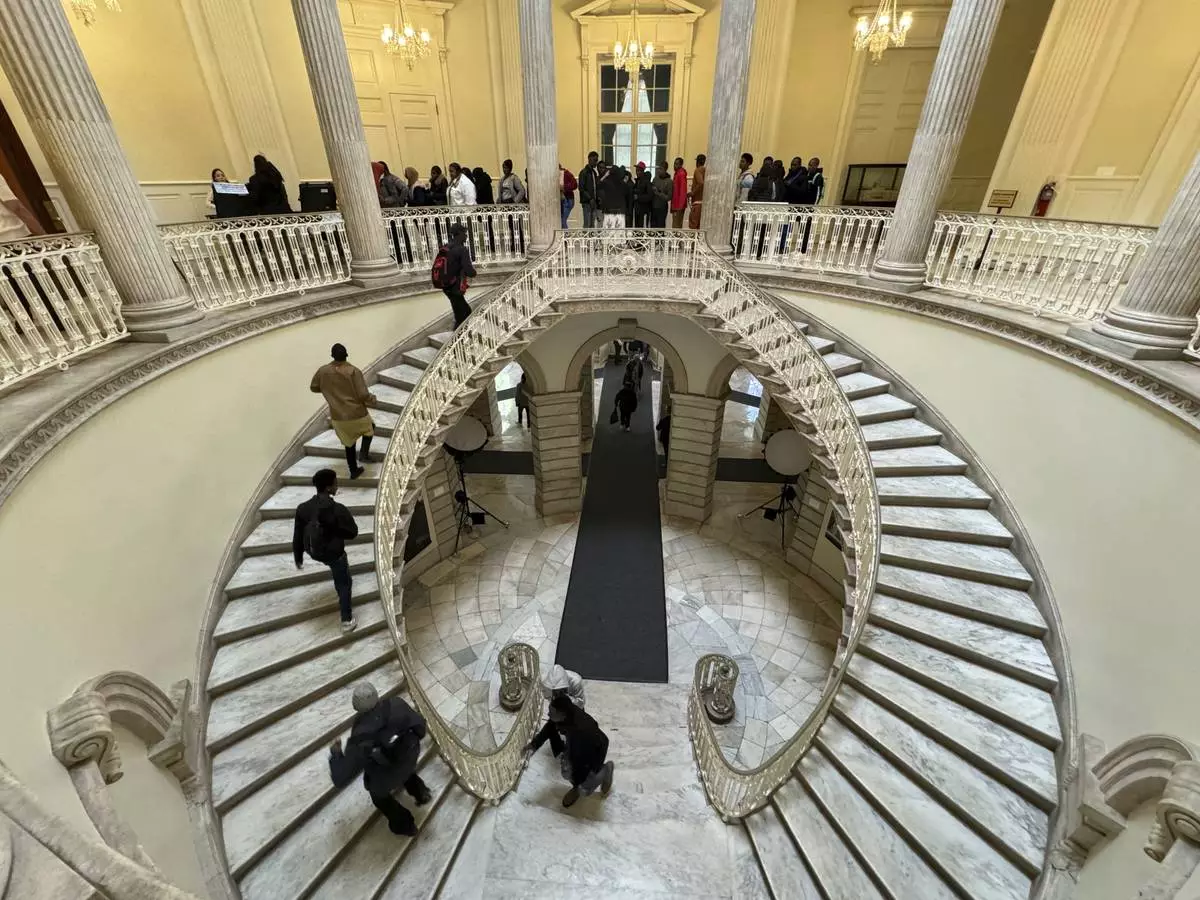
Immigrants line up to attend a city council hearing on disparities in immigration services for Black immigrants at City Hall in New York on Tuesday, April 16, 2024. (AP Photo/Cedar Attanasio)


